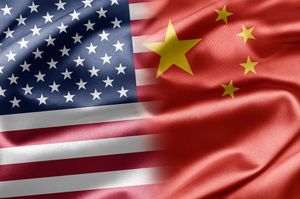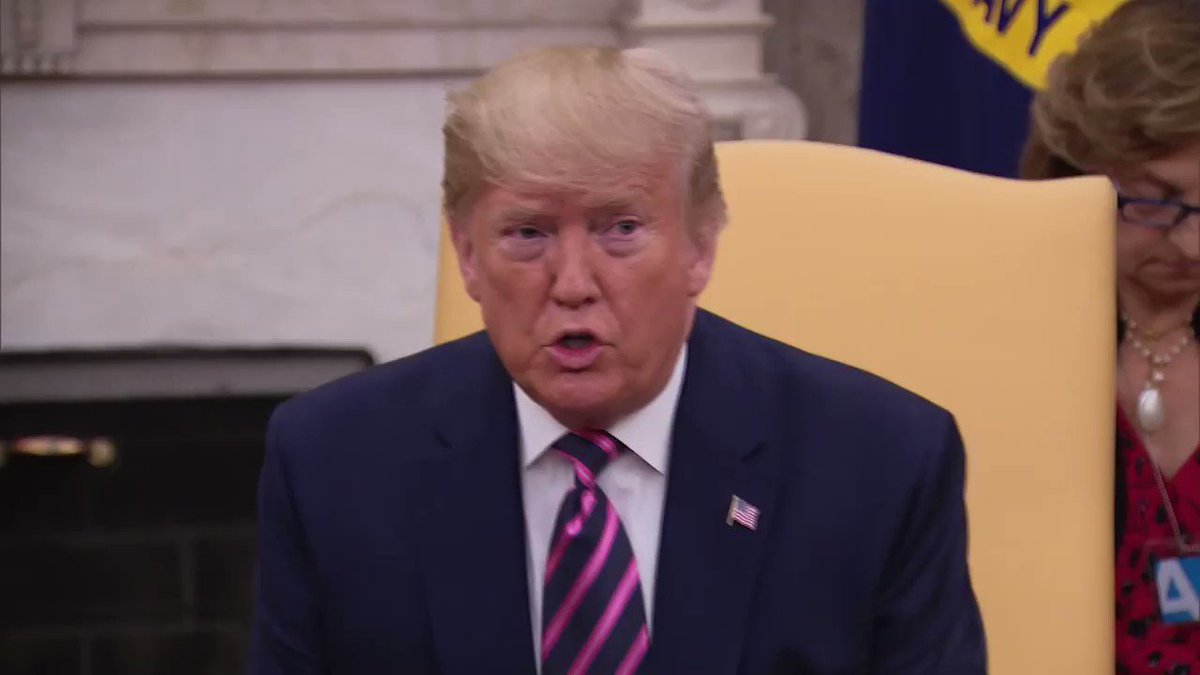$40 Billion of U.S. Farm Purchases Viable, According to JCI
 After the U.S. and China reached an initial trade deal earlier this month, doubts began to emerge about the potential for China to quickly increase demand of U.S. farm goods to the $40-$50 billion annual range envisioned in the agreement.
After the U.S. and China reached an initial trade deal earlier this month, doubts began to emerge about the potential for China to quickly increase demand of U.S. farm goods to the $40-$50 billion annual range envisioned in the agreement.
“Newsletter: Does China Really Need $50B in U.S. Farm Goods?” by Jeffrey Sparshott. The Wall Street Journal Online (December 18, 2019).
Reuters writers Hallie Gu and Tom Daly reported late last week that, “China will make good on a pledge to purchase more than $40 billion per year of U.S. agricultural products under the recently agreed Phase 1 trade deal between the two countries, China’s top agriculture consultancy said on Friday.”
‘Most foreign media don’t believe that China can fulfil the commitments,’ Shanghai-based consultancy JCI wrote in a note. ‘But as a Chinese consultant company on (the) agricultural market, JCI strongly believe that China has the ability and will fulfil its promise.’
“JCI estimates China can buy a total of roughly $41.3 billion worth of U.S. farm products annually, including around $18.7 billion – or 45 million tonnes – of soybeans.”
“China can fulfil $40 billion U.S. farm purchase pledge: consultancy,” by Hallie Gu and Tom Daly. Reuters News (December 20, 2019).
The Reuters article explained that, “JCI’s projections were based on a ‘careful study‘ of China’s import volume of U.S. farm products in the past and assume favorable weather and pricing throughout, said the company. It noted that China’s U.S. soybean imports hit a record high of 33.66 million tonnes in 2016.
“JCI expects another $2.1 billion will come from 1 million tonnes of frozen pork and offal imports, while sorghum, corn and distillers’ grains imports will reach about $1.8 billion each. It did not include volumes bought for state reserves.”
“China can fulfil $40 billion U.S. farm purchase pledge: consultancy,” by Hallie Gu and Tom Daly. Reuters News (December 20, 2019).
Gu and Daly added that, “Wheat shipments will hit $1.4 billion, chicken feet imports will reach $1.1 billion – which would mark a 257% increase from the previous record – and nut purchases will rise to $2.5 billion, it said.”
“China can fulfil $40 billion U.S. farm purchase pledge: consultancy,” by Hallie Gu and Tom Daly. Reuters News (December 20, 2019).
Bloomberg News reported on Friday that, “JCI said it released its estimates in an effort to remove doubts cast by international media and other institutions over Beijing’s phase one trade deal agreement with Washington. Citigroup Inc. said it’s skeptical that China can purchase $40 billion to $50 billion in American farm goods next year, and even reaching $32 billion would be a ‘challenging feat.’”
Sorry. I’m still skeptical this will happen. But don’t need to get all the way to $40 billion for Ag markets to pop https://twitter.com/kannbwx/status/1208080877219205121 …
Karen Braun
✔@kannbwx
Replying to @kannbwxHere is the article. JCI #China says that 45 mmt of U.S. #soybeans, 8 mmt of #corn, and 5 mmt of #wheat – all record high – could be imported within one year.https://www.reuters.com/article/us-usa-trade-china-agriculture/china-can-fulfil-40-billion-us-farm-purchase-pledge-consultancy-idUSKBN1YO0WP …
Meanwhile, Bloomberg writer Marvin G Perez reported last week that, “Chinese buying of American farm products will be determined by how competitive they are and not just by estimates laid out in an initial trade accord, according to a U.S. trade adviser.”
“‘These are business people,’ [Tom Kehoe, an adviser to the U.S. Department of Agriculture and and U.S. Trade Representative] said Tuesday in an interview at Bloomberg headquarters in New York. ‘They are going to have to be in a competitive situation. Otherwise, they are not going to buy it.’”
And on Thursday, Reuters writers P.J. Huffstutter and Karl Plume reported that, “The U.S.-China trade war has accelerated Brazilian efforts to erode the United States’ share of the world soybean export market, and some of the shifts in global grain flows could last for years, according to executives at CHS Inc, the largest U.S. farmer cooperative.
“Even with a so-called Phase 1 trade pact expected to be signed in January, uncertainty over Chinese purchases of American farm products – specifically what goods China has agreed to buy, in what volumes and which timeframes – means that some of the profound trade changes that have occurred during the past 18 months are at risk of becoming permanent, they said.”
.@FoxBusiness Video: “@USTradeRep Lighthizer: Phase one will be good for #farmers ‘across the board'”https://video.foxbusiness.com/v/6116444117001/?playlist_id=3166411554001#sp=show-clips …
On the other hand, a Reuters News item from Wednesday reported that, “Brazil could lose $10 billion per year in farm exports to China if a recent Sino-U.S. trade deal is implemented as proposed, according to a study by Brazilian research center and business school Insper published on Wednesday by local newspaper Folha de S.Paulo.
“Brazil-China trade could return to pre-trade war levels, erasing some of the gains seen, particularly last year, said Marcos Jank, a former BRF SA executive in Asia and agricultural trade expert, who coordinated the study.”
And with respect to the initial trade deal being signed, Bloomberg writers Joshua Gallu and Shawn Donnan reported late last week that, “The U.S. and China are arranging the formal signing of the first phase of a broader trade deal between the world’s two biggest economies, President Donald Trump said after discussions between him and his counterpart, Xi Jinping.
“‘Had a very good talk with President Xi of China concerning our giant Trade Deal. China has already started large scale purchases of agricultural product & more. Formal signing being arranged,’ Trump said in a tweet Friday, adding they also discussed North Korea and Hong Kong. The call took place this morning, the White House said.”
Gallu and Donnan explained that, “According to one person close to the talks, the two sides are now exchanging drafts of a Chinese translation of the agreement. That can sometimes be a contentious process in any trade talks, but the person said no major sticking points had materialized so far, meaning the two sides were on track for a signing and the release of a public text in the first half of January.”
On Monday, Bloomberg News reported that, “China’s meat imports surged to a record in November, with buyers in the world’s top pork consumer stepping up purchases ahead of traditional holidays to boost supplies that were hurt by African swine fever.
“Pork imports jumped 151% from a year earlier to 229,707 tons last month, customs data showed. Shipments in the first 11 months increased almost 58% to 1.7 million tons.
“Beef purchases were 186,984 tons last month, up nearly 80% from a year earlier. Shipments rose 57% to 1.5 million tons in the January-November period.”
Also Monday, Wall Street Journal writers Grace Zhu and Chao Deng reported that, “China will cut import tariffs for frozen pork, pharmaceuticals and some high-tech components starting from Jan. 1, a move that comes as Beijing and Washington are trying to complete a phase-one trade deal.”
The Journal writers pointed out that, “The lower levies will apply to frozen pork, as China aims to shore up its meat supplies amid an outbreak of swine fever, as well as semiconductor products and medicines to treat asthma and diabetes.”
“The announcement comes as China and the U.S. are close to signing a trade deal aimed at putting an end to a tit-for-tat tariff war that has lasted nearly two years. Neither side has released a version of their draft agreement, but China said it would purchase more American products, including farm goods, while Washington said it would cancel plans for fresh round of tariffs while reducing some existing ones,” the Journal article said.
Source: Keith Good, Farm Policy News












